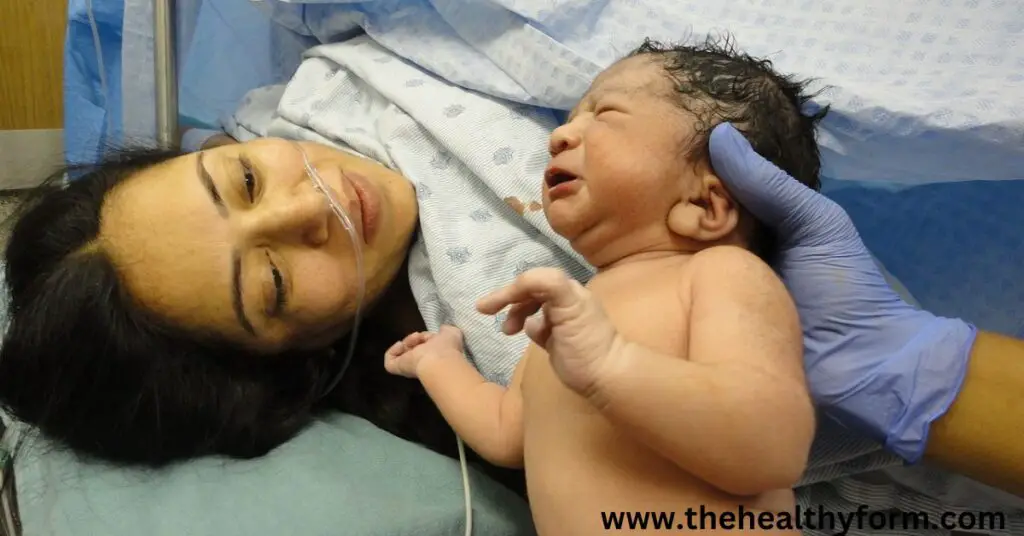10 Tips for a Successful Pregnancy and Delivery
Discover tips for a successful pregnancy and delivery. Learn about the best practices for a smooth and enjoyable experience. Pregnancy is a time of physical and emotional changes for women. There is much to consider, from managing pregnancy symptoms and nutrition to preparing for labor and parenting. In this blog post, we’ll share 10 tips for navigating pregnancy and preparing for the arrival of your new baby.

Pregnancy symptoms in women
Many women find pregnancy exciting, but it may come with several unpleasant symptoms. Morning sickness, which includes nausea, vomiting, and exhaustion, is one of the more typical early pregnancy symptoms. Changes in appetite and mood are common, as well as breast pain and swelling. Other symptoms, including heartburn, constipation, and back discomfort, may appear as the pregnancy proceeds.
While some of these symptoms may be controlled via dietary and lifestyle adjustments, such as getting enough rest, others might need medical attention. Women must address any worries or symptoms with their healthcare practitioner to promote a healthy pregnancy for the mother and the unborn child.
Pregnancy nutrition and diet
A woman’s body goes through many changes throughout pregnancy to support the growth and development of her unborn child. At this period, eating a nutritious, well-balanced diet is essential to ensuring the mother and the unborn child receive the nutrients required for good health. A varied intake of fruits, vegetables, whole grains, and lean meats should make up a balanced diet. Essential vitamins, minerals, and fiber are included in these foods, supporting healthy growth and development.
Also, it’s crucial to remain hydrated by drinking lots of water and avoiding beverages that are heavy in sugar or calories. Also, pregnant women should avoid foods and drinks like alcohol and caffeine that might harm their unborn child. Women may contribute to the healthiest results for the development and growth of their unborn child by leading a healthy lifestyle and eating a balanced diet.

Pregnancy exercise and fitness
Maintaining a good fitness level and exercising often can help lower the risk of some health issues and enhance general well-being during pregnancy. Yet, it’s crucial to select low-impact exercises that are secure for both the mother and the growing fetus and adjust the volume and frequency of exercise as the pregnancy progresses. Staying active throughout pregnancy is made possible by activities like walking, swimming, and prenatal yoga, which all assist in developing flexibility and strength, lowering stress, and improving cardiovascular health. To achieve a safe and efficient fitness program while pregnant, speaking with a healthcare professional and paying attention to your body is essential.

Pregnancy and labor tips
It may be both exhilarating and daunting to be pregnant and give birth. It’s crucial to put your health first and be ready for your child’s birth by getting prenatal care, being active, and following a nutritious diet. Having a plan as labor approaches and communicating your preferences to your healthcare practitioner and support group is critical. This might entail choosing a delivery position, reviewing pain relief alternatives, and preparing for probable problems. Remember that every labor and delivery is different, so be adaptable and believe in your gut as you navigate this life-altering experience.
Pregnancy and birth planning
Preparing for the birth of a child is a crucial component of pregnancy that birth planning aids with. They may ensure that their delivery experience adheres to their beliefs and goals by making educated judgments about their preferences and requirements. This procedure entails choosing a medical professional who fits them well, picking where to give birth, and drafting a birth plan outlining their expectations for labor and delivery. As the pregnancy advances, it’s crucial to have an open mind and be adaptable since unforeseen events need alterations to the initial plan. A safe and satisfying birthing experience depends on the expectant parents and their healthcare practitioner’s effective communication.

Pregnancy and childbirth education
Expectant parents can prepare for childbirth’s physical and emotional demands by attending education sessions. In addition to covering issues like breastfeeding and baby care, these seminars can offer useful information about labor and delivery, pain management strategies, and postpartum care. It’s crucial to pick a childbirth education course that fits your requirements and preferences, such as a particular delivery technique or a concentration on medical interventions or natural birth. A childbirth education program can help parents and babies have a happy delivery experience by lowering worry, boosting confidence, and encouraging labor.
Pregnancy and mental health
Pregnancy can be a time of happiness and worry when women undergo physical and mental changes while preparing for a new baby. Prioritize your mental health at this time, and get assistance if you need it. This includes speaking with medical professionals who can provide resources and mental health support services.
Women who seek counseling or therapy might learn coping mechanisms, stress management, and emotional processing techniques. Being a part of a support group allows you to meet people going through similar things and exchange support and advice. Women may better manage the difficulties of pregnancy and get ready for the birth of their new child by putting their mental health first.
Pregnancy and postpartum care
A vital component of women’s reproductive health is postpartum care. Making good lifestyle decisions and seeking prenatal care is crucial throughout pregnancy to promote the baby’s growth and development. This can entail attending routine doctor’s appointments, getting adequate sleep, eating a healthy diet, and abstaining from dangerous drugs like alcohol and cigarettes.
Postpartum care after childbirth entails monitoring the mother’s physical recovery, addressing any pain or difficulties, and getting used to caring for a baby. Although this can be difficult, getting support and assistance can significantly improve the mother and baby’s general health and well-being.
Pregnancy and parenting advice
Childbirth and parenthood are joyous and challenging events that need tolerance, love, and commitment. Prioritizing your health and your developing baby’s development is crucial throughout pregnancy. This may entail regular prenatal care, forming healthy routines, and preparing for your child’s birth.
The joys and difficulties of parenthood, such as restless nights, feeding difficulties, and adjusting to a new schedule, must be overcome once your kid is born. When you start your new adventure, feeling more confident and capable may be achieved by asking for guidance and assistance from reliable people. Remember to follow your gut and put your child’s welfare above anything else.
Pregnancy and baby gear essentials
Preparing for a new baby can be overwhelming, as many items must be considered. It’s important to list baby gear essentials and prioritize items necessary for your specific needs and preferences. This may include a car seat, stroller, crib, and diaper bag. It’s also important to research safety guidelines and to choose high-quality, durable products.
FAQ about Successful Pregnancy and Delivery
Here are some of the most common questions people have about successful pregnancy and delivery:
What should I do to ensure a healthy pregnancy?
To ensure a healthy pregnancy, it’s important to eat a balanced diet, exercise regularly, get plenty of rest, and avoid alcohol, tobacco, and drugs. You should also attend prenatal appointments and follow your healthcare provider’s instructions.
How much weight should I gain during pregnancy?
The weight you should gain during pregnancy depends on your pre-pregnancy weight. Generally, women at a healthy weight should aim to gain between 25 and 35 pounds. Underweight women should gain more, while women who are overweight should gain less.
What should I expect during labor and delivery?
During labor and delivery, you can expect to experience contractions as your body works to push your baby through the birth canal. You may also experience discomfort, pain, and fatigue. Your healthcare provider will monitor you and your baby throughout the process to ensure everything is progressing.
What can I do to prepare for labor and delivery?
You can take childbirth classes, practice relaxation techniques, and develop a birth plan to prepare for labor and delivery. You should also pack a bag for the hospital or birth center and have a plan for getting to the hospital or birth center when the time comes.
Conclusion
Pregnancy is a time of physical and emotional changes for women. There is much to consider, from managing pregnancy symptoms and nutrition to preparing for labor and parenting. By following these ten tips, you can navigate pregnancy and prepare for the arrival of your new baby. Remember to prioritize self-care, seek support when needed, and trust your instincts as you navigate this exciting and challenging journey.





